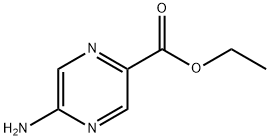What specific components in milk gel contribute to the alleviation of alcohol poisoning? How do these components interact with the body's metabolic processes to reduce the harmful effects of alcohol? Additionally, are there any clinical trials or experimental data that can scientifically validate the effectiveness of milk gel in treating alcohol poisoning?Compared with traditional treatments for alcohol poisoning, what are the advantages and limitations of milk gel? Does the effectiveness of milk gel vary depending on the severity of alcohol poisoning? And what are the potential side effects of using milk gel to alleviate alcohol poisoning?
Uncovering the Scientific Basis: Can Milk Gel Really Alleviate Alcohol Poisoning?
Related Products More >
-
- 9066-45-9
- equest For Quotation
- Bottle,barrel,cargo,container,etc.
-
- 9045-23-2
- equest For Quotation
- Bottle,barrel,cargo,container,etc.
-
- 9045-23-2
- equest For Quotation
- 25kg drum



 沪ICP备2021018848号-5
沪ICP备2021018848号-5

However, it also has limitations. All the current research has been done on mice, and it hasn't been tested on humans yet. The physiological structures and metabolic ways of mice and humans are different, so it's hard to say whether it will have the same effect on humans. Also, there's a long way to go from laboratory research to actual clinical application. For example, a large number of clinical trials need to be conducted to ensure safety and effectiveness.
As for whether the effectiveness will vary depending on the severity of alcohol poisoning, the article doesn't mention it. But we can imagine that if the alcohol poisoning is very severe, relying solely on milk gel may not be enough, and it may need to be combined with other treatment methods.
Regarding side effects, we don't know yet. Since there haven't been human experiments, we don't know if it will cause allergic reactions in the human body or have adverse interactions with other drugs. All these things need further research in the future to find out!
As for how it interacts with the body's metabolic processes, these special fibrils are like "scavengers". They're very stable in the digestive environment and don't get easily broken down. They keep working, continuously reducing the alcohol content in the blood and preventing the accumulation of toxic acetaldehyde. If there's too much acetaldehyde in the body, it's a big problem and can damage organs!
However, all the current experiments have been done on mice in the lab. Although the data shows that the gel can steadily reduce the blood alcohol level in mice, mice aren't humans! There haven't been any clinical trials on humans yet. So, to scientifically validate its effectiveness in treating human alcohol poisoning, it's not enough right now. We still need further research!